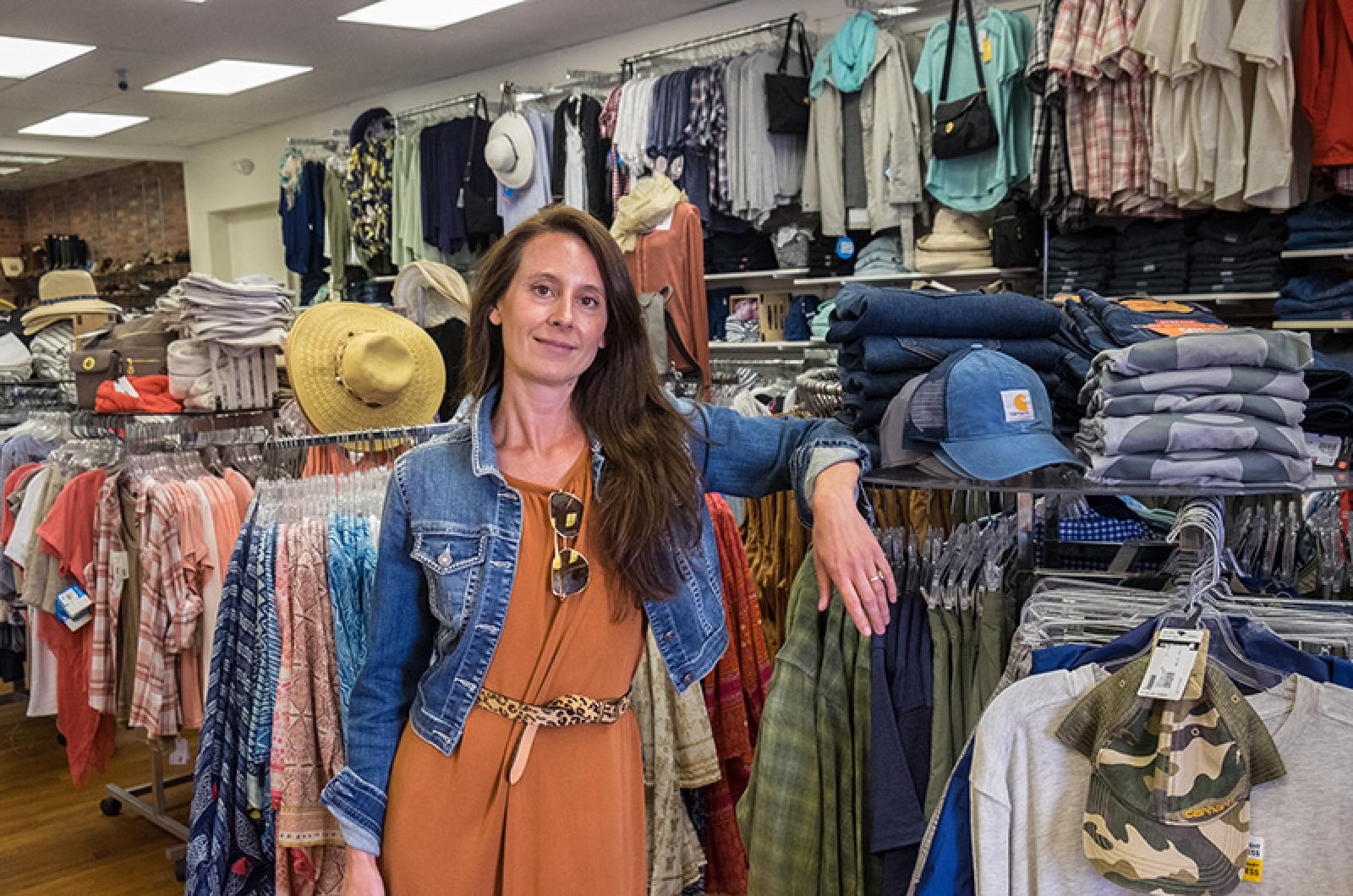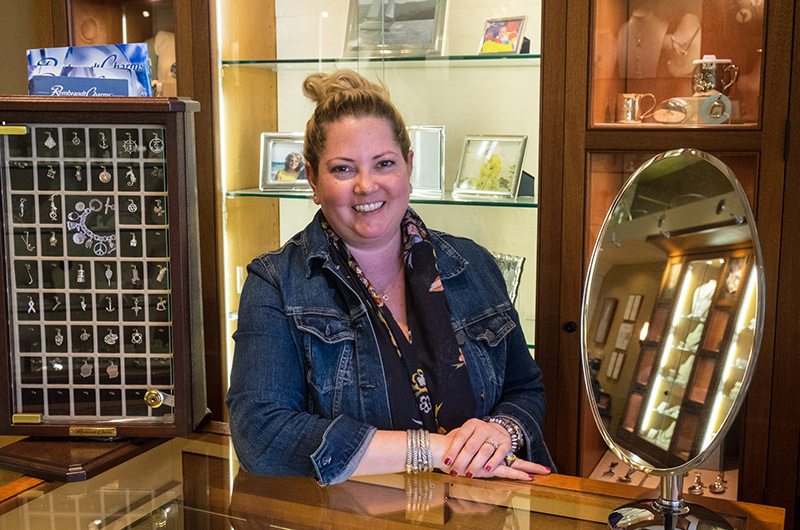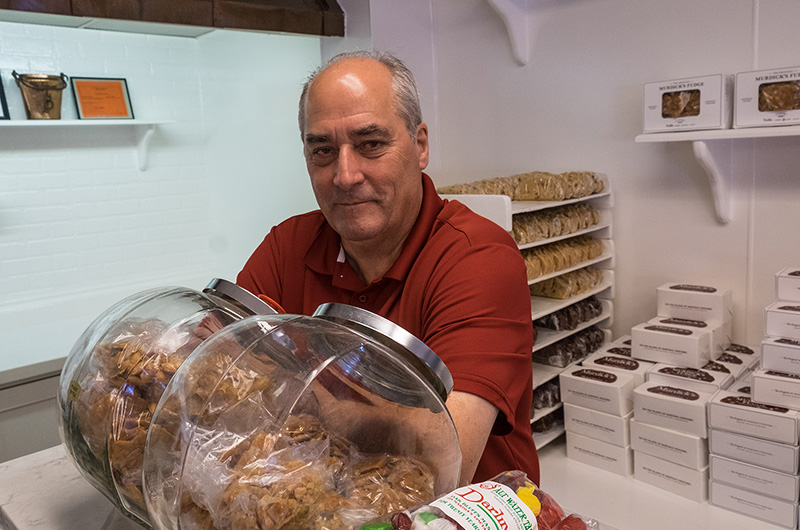By Memorial Day, Erin Tiernan, part-owner of Eastaway and Basics, two retail stores located on Circuit avenue in Oak Bluffs, usually has nearly 100 job applications for open positions. This year she has six.
“It’s a crisis,” Ms. Tiernan said. “I’ve had to work full-time on the floor, along with our two other owners, to keep the store open.”
The summer labor shortage on the Vineyard is nothing new, but this year many business owners feel it is worse than ever. The ubiquity of Help Wanted signs all over the Island underscores this sentiment.
New restrictions on foreign worker visas play a large part as does inadequate affordable housing opportunities for college students and other seasonal employees.
Vineyard businesses, like Ms. Tiernan’s, depend on foreign seasonal workers to staff their shops during the busy summer months. These workers come to the Vineyard on either J-1 student visas, which the United States issues to non-immigrant students to promote cultural exchange, or H-2B visas. The H-2B visas are part of a non-immigrant program that permits American employers to temporarily hire foreign workers.
The Federal Government allocates 66,000 H-2B visas per year nationwide; 33,000 for the winter season and 33,000 for the summer. In past years, returning H-2B workers didn’t count against the cap, and Island businesses, familiar with system, always filed early to guarantee they could get the requisite visas for summer staff. But that all changed in 2017, when policy shifted and returning workers began to count against the 33,000-person seasonal cap, increasing demand for visas nation-wide and forcing the government to resort to a lottery system for selection.
In the words of Nancy Gardella, executive director for the Martha’s Vineyard Chamber of Commerce, this “hamstrings” Island employers.
One of those employers is Mike McCourt, manager of Murdick’s Fudge, with locations in Edgartown, Vineyard Haven, and Oak Bluffs.
“The lottery system is a joke,” he said. “What we’d do in previous years was make sure our applications were in as soon as possible, and that would ensure that our chances [to get visas] were much greater.”
In 2018, however, the rest of the country caught up to the Vineyard. U.S. Citizenship and Immigration Services received approximately 86,000 petitions within the first five days that visa applications opened. Mr. McCourt described it as a “mad scramble.” He filed his applications January 1. Six months later, Mr. McCourt still has “Now Hiring” signs on his windows.
Even employers lucky enough to find summer workers have struggled to find housing for those employees. This is a perennial concern that faces seasonal labor on the Island.
“It’s a systemic problem,” said Sarah York, who serves as the president of the Tisbury Business Association and manager of CB Stark Jewelers in Vineyard Haven.
“I just hired someone two weeks ago and she called me yesterday and said her housing didn’t work out so she can’t take the job.”
Rising real estate prices on the Island have also affected the ability to hire and retain American students, once a reliable source of labor during the summer season.
“Ten to 15 years ago you could come to the Island with four or five friends, rent a house, work, make money, and leave,” Ms. York said. “You can’t do that anymore.”
Some employers are fortunate enough to have the space to provide employees with summer housing. Sean Fritich, general manager of Shirt Tales in Edgartown, said the business currently houses five J-1 employees in an apartment above the storefront at a discounted rent. Tony Breth, who manages four different small businesses in Vineyard Haven, says that they are able to offer some of their employees housing at a small property on Beach Road.
But most local business owners can not provide such amenities — a reality that forces seasonal workers to find accommodations by whatever means necessary.
“There have been times with terrible examples of overcrowding, people putting three bunk beds in a room . . . and that’s outrageous,” Ms. Gardella said. “But I think that there are lots of options for seasonal housing that would not put any particular burden on communities. However, communities have to agree that they’re open to that.”
According to Christine Flynn, the economic development and affordable housing director for the Martha’s Vineyard Commission, all six towns on the Island identified seasonal housing as a need. In 2016, the Dukes Country workforce increased by 3,436 during the peak summer months of July and August in comparison to the average monthly employment of 8,843.
Although many proposed projects in past years have fizzled, including dormitory-style housing at the airport, the commission has worked with the town of Oak Bluffs in redrafting some of the zoning bylaws to allow for above-the-shop housing.
For example, The Lampost redesigned the top two floors of their building to allow for seasonal workforce housing.
Susan Phillips, a life-long Island resident and owner of Phillips Hardware in Oak Bluffs, also wants to add housing on the second floor of her store. Finding employees this year has been so difficult that she’s had to bring her husband out of retirement to help around the shop. But rebuilding is expensive and time-consuming, especially for a retail business that can’t afford to miss an opportunity to stay open.
The affordable housing crisis, combined with the lottery system for visa allocation, makes many summer workers feel as if the odds are stacked against them. On Tuesday, there was some good news on the summer employment front when the Department of Homeland Security released another 15,000 H-2B visas, available on a lottery system. While this makes some Vineyard employers optimistic, others don’t want their livelihood to depend on games of chance.
“There were 81,000 visas applied for . . . and they only allocate 33,000,” said Mr. McCourt, referring to the original amount of visas issued. “That leaves 15,000 visa spots for 48,000 visa applications. The chances are less than 30 per cent of getting a part of the 15,000. It’s a roll of the dice.”










Comments (41)
Comments
Comment policy »